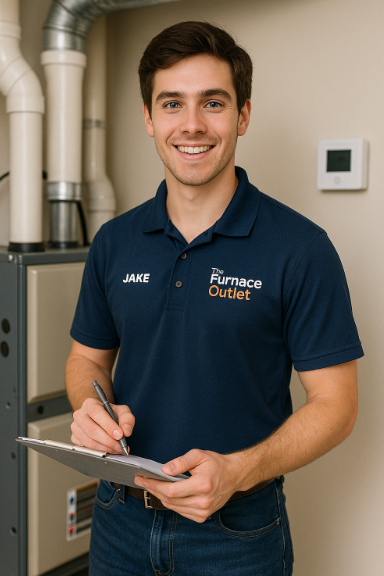When it comes to maintaining a home HVAC system, few components are as critical—and as misunderstood—as the heat pump compressor. This small but powerful unit is the heart of your heat pump system, managing the flow of refrigerant and enabling both heating and cooling in your home. If you’ve ever wondered what a heat pump compressor does, how it differs from a standard AC compressor, or when it’s time for a heat pump compressor replacement, you’re in the right place. Today, we’ll dive deep into the function, maintenance, and replacement of these crucial HVAC components, all in plainspoken, no-nonsense advice in Jake Lawson’s voice.
What Is a Heat Pump Compressor?
A heat pump compressor is essentially the engine of your heat pump system. It compresses the refrigerant, raising its temperature and pressure so that heat can be transferred efficiently between indoor and outdoor coils. Unlike a standard air conditioner, a heat pump works both ways—it can heat your home in the winter and cool it in the summer. The compressor is the component that makes this possible.
You can think of the compressor as a pump for refrigerant. It moves the refrigerant through the system, ensuring it absorbs heat from outside air during heating mode and releases heat during cooling mode. For a more technical overview, the U.S. Department of Energy provides an in-depth guide to heat pump operation and efficiency here.
Types of Heat Pump Compressors
Not all compressors are created equal. Heat pump compressors generally fall into three categories:
-
Reciprocating Compressors – These are piston-style compressors, commonly used in smaller residential units. They’re reliable, simple, and relatively inexpensive to repair.
-
Scroll Compressors – Scroll compressors are more efficient and quieter. They use a spiral design to compress refrigerant and are commonly found in newer, high-efficiency heat pumps.
-
Rotary Compressors – Rotary compressors are compact and energy-efficient, often used in smaller heat pumps or ductless mini-split systems.
For homeowners who value efficiency and quiet operation, scroll compressors are usually the best choice. If you want to dive into the differences between these types, SPRSUN has an excellent breakdown here.
How a Heat Pump Compressor Works
The operation of a heat pump compressor is surprisingly simple once you understand the cycle:
-
Heating Mode: The compressor pressurizes the refrigerant in the outdoor unit. The refrigerant absorbs heat from the outside air and transfers it indoors through the indoor coil. Even in cold weather, modern heat pumps can extract heat efficiently.
-
Cooling Mode: The compressor works in reverse. It removes heat from indoor air and releases it outdoors. This is the same principle as your standard air conditioner but with reversible functionality.
For a step-by-step diagram of how compressors function in heat pumps, check out Carrier’s technical guide here.
Signs Your Heat Pump Compressor Needs Replacement
Knowing when to replace a heat pump compressor can save you from costly repairs and inefficient heating or cooling. Common signs include:
-
Unusual Noises: Loud banging, clanking, or humming noises from your outdoor unit often indicate compressor issues.
-
Poor Heating or Cooling: If your heat pump is no longer heating effectively in winter or cooling efficiently in summer, the compressor may be failing.
-
Frequent Cycling: Short cycling—where the heat pump turns on and off frequently—can be caused by a worn-out compressor.
-
Tripped Breakers or Electrical Issues: Compressors draw a lot of electricity. Frequent breaker trips could indicate a failing compressor.
For more guidance on diagnosing compressor problems, This Old House provides practical advice for homeowners here.
Heat Pump Compressor Replacement
Replacing a heat pump compressor is not a DIY job. It requires specialized tools, refrigerant handling knowledge, and electrical expertise. Here’s a general overview of what the process entails:
-
System Evaluation: A technician inspects the entire heat pump system to confirm the compressor is the issue.
-
Recover Refrigerant: Refrigerant must be safely removed and stored, following EPA regulations.
-
Remove Old Compressor: The old compressor is uninstalled from the outdoor unit.
-
Install New Compressor: A new, compatible compressor is installed, ensuring proper connections and sealing.
-
Recharging Refrigerant and Testing: The system is recharged with refrigerant, and the technician tests the unit for correct operation.
A new compressor is a significant investment, but if your heat pump is over ten years old or experiencing frequent breakdowns, replacement can restore efficiency and reduce energy bills. Energy Star has resources to help you evaluate cost savings and system efficiency here.
Maintenance Tips for Longevity
Regular maintenance can extend the life of your heat pump compressor:
-
Keep the Outdoor Unit Clean: Remove debris, leaves, and dirt from around the condenser.
-
Change Filters Regularly: Clean or replace filters every 1–3 months to prevent airflow issues.
-
Schedule Annual Tune-Ups: Have a licensed technician check refrigerant levels, electrical connections, and overall system performance.
-
Monitor Operating Conditions: Avoid excessive cycling and maintain consistent thermostat settings.
By keeping up with preventive maintenance, you can often avoid premature compressor failure and maximize your system’s efficiency.
Choosing a Reliable Replacement
When shopping for a replacement compressor or heat pump system, look for:
-
OEM Parts: Original manufacturer compressors ensure compatibility and reliability.
-
Warranty Coverage: Many high-quality compressors come with 5–10 year warranties.
-
Energy Efficiency Ratings: Higher SEER (Seasonal Energy Efficiency Ratio) ratings reduce energy costs over time.
For a variety of replacement heat pump compressors and system options, visit reputable distributors like HVAC Direct here.
Why Your Heat Pump Compressor Matters
Ultimately, the compressor is the most critical component in your heat pump. Without it, your system cannot transfer heat, making both heating and cooling impossible. Investing in a quality compressor, performing regular maintenance, and addressing issues promptly ensures your home stays comfortable year-round.
If you’re in the market for a reliable heat pump system, consider the Goodman 3 Ton 14.5 SEER2 R32 Bundle. This system includes a high-efficiency compressor, modern refrigerant, and air handler for a complete solution that’s perfect for most homes.







